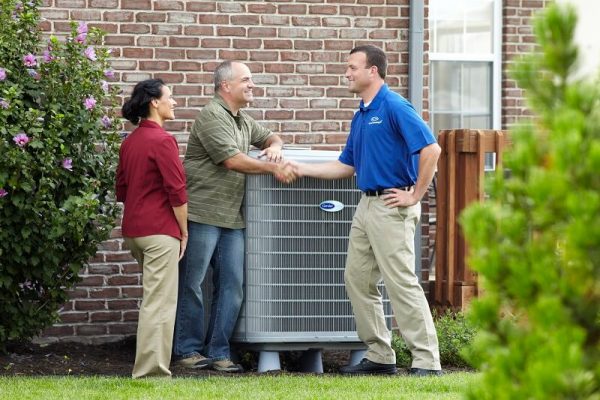It is critical to select the appropriate size air conditioner unit. The right size unit will not only affect the temperature in every room in your house, but it will also save you money.
A unit that is excessively large may cool more quickly, but it may also hamper the unit’s effectiveness. An air conditioner does more than just cool the air; it also eliminates moisture, or humidity, which is what makes us hot and sticky. Though the air will cool faster, moisture will not be properly collected from the air if the unit is not run long enough. As a result, the AC unit will turn on and off more frequently.
Convenience

When an air conditioner is turned on, it performs two functions. It reduces air temperature and eliminates moisture from the atmosphere. The air conditioner must be turned on for the second one.
The air reaches a very chilly surface as it flows over the evaporator coil. When air travels over that chilly surface, the temperature should drop by around 20 degrees Fahrenheit. The evaporator coil of an air conditioner cools and dehumidifies the air in your home in locations where relative humidity is higher. The temperature of the coil is below the dew point of the air in the summer, which is another essential event that occurs when the air contacts the coil. Water vapor condenses on the coil as a result.
But, here’s the thing: Water vapor condenses on big air conditioner coils as well, but it takes a lot of condensation on the coil for the water to start dripping into the pan below the coil. Even then, you haven’t arrived. You must still fill the pan with enough water to allow it to drain to the outside.
You haven’t really dehumidified the air until the water that condenses makes it to the outside. Why? Because the water on the coil can evaporate and re-enter the home’s air. If you make the error of setting your thermostat to Fan-On rather than Auto (don’t do it! ), the water on the coil will evaporate even faster.
Because they swiftly satisfy the cooling load and then shut off, oversized air conditioners do not run for long periods of time. Air conditioners that are properly sized last longer, so if you want your air conditioner to dehumidify as well as cool your home, don’t allow the HVAC contractor oversize it.
Wear and Tear

What’s mentioned above is irrelevant if you live in the desert. There’s no water vapor on the coil to condense, and if there was, your dew point would be near absolute zero. (OK, maybe that’s a stretch.) The second reason, on the other hand, should be very important to you. Starting up and shutting down is what wears out equipment. The more it happens, the shorter the equipment’s lifespan.
Because it only runs for a brief period to reach the thermostat setpoint, an enormous air conditioner starts up and shuts down a lot more. Then it comes on again a few minutes later and runs for a short time. An enormous air conditioner can have a lot more start-ups and shut-downs than a correctly sized air conditioner throughout the course of a day. This implies you’ll have to repair it more frequently and replace it sooner.
Will You Make Financial Savings?

People in the industry used to believe that having a properly sized air conditioner would save you money on your air conditioning expenses, but that mindset has changed. Many articles claim that the homeowner will only save a little amount of money (but the utilities benefit by lower peak loads). Because you’re installing a smaller AC, you should save money on the upfront cost.
How Do You Know What Size to Get?

Use the entire HVAC design process for new homes, starting with Manual J, the heating and cooling load calculation technique from the Air Conditioning Contractors of America, the trade group for air conditioning contractors. The best way to accomplish it for existing homes is to observe how long your current air conditioner runs at design settings. Of course, you want to do this while your air conditioner is still working, not after it’s broken. It’s obviously large if it only runs for 5 to 10 minutes before shutting down. It’s definitely sized close to the actual cooling load if your runtimes are above half an hour at design circumstances.
Ask your builder, remodeler, or HVAC contractor how they plan to size the air conditioner if you’re building a new home, remodeling an existing home, or just replacing an air conditioner in an existing home. Don’t let them do it if they say it’ll be based on the size of your house. There’s a lot more to it than conditioned floor surface, and we haven’t even mentioned the capabilities of various types of equipment (single speed, fixed capacity, multi-stage, mini-splits, etc.).






GIPHY App Key not set. Please check settings